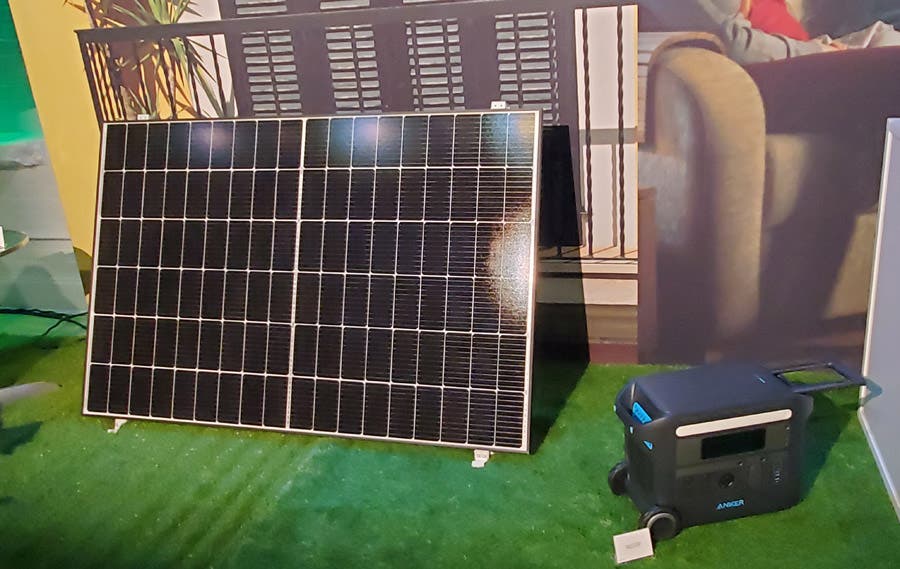Sign up for daily news updates from CleanTechnica on email. Or follow us on Google News!
Utah has taken a significant step in expanding residential solar energy options with the passage of House Bill 340 (H.B. 340), known as the Solar Power Amendments. Signed into law on March 25, 2025, by Governor Spencer Cox, this legislation introduces a new category for small, portable solar generation devices, allowing residents to integrate plug-in solar systems into their homes more easily.
Key Provisions of H.B. 340
H.B. 340 defines a “portable solar generation device” as a movable photovoltaic system that:
- Has a maximum power output of 1,200 watts.
- Connects to a building’s electrical system through a standard 120-volt alternating current outlet.
- Is primarily intended to offset part of the customer’s electricity consumption
These devices must also include a feature — anti-islanding protection — to prevents the solar panels from energizing the building’s electrical system during a power outage, ensuring safety during those events.
The bill exempts these portable solar devices from certain regulatory requirements, including:
- Interconnection requirements typically mandated for larger solar installations
- The need to enter into interconnection agreements with electric companies
- Participation in net metering programs
Additionally, electric companies are prohibited from requiring customers using these devices to obtain approval before installation, to pay related fees, or to install additional controls or equipment beyond what is integrated into the system. The legislation also provides liability protections for the electric companies concerning these devices.
Legislative Journey & Support
Introduced by Representative Raymond P. Ward and Senator Wayne Harper, H.B. 340 received unanimous bipartisan support. The Utah House passed the bill with a 72-0 vote, and the Senate followed with a 27-0 vote, reflecting broad consensus on the initiative.
Utah’s move to sign this into law aligns with trends in other regions, such as Germany, where balcony solar systems have gained popularity. These systems allow residents, particularly those in apartments or with limited space, to contribute to renewable energy efforts and reduce electricity costs. Utah’s legislation could pave the way for similar adoption patterns, offering a more accessible entry point into solar energy for its residents.
What This Means For Utah Residents
The enactment of H.B. 340 simplifies the process for homeowners to adopt solar energy by allowing the use of portable plug-in solar arrays without the complexities associated with traditional solar installations. This development is particularly helpful for residents who may have been deterred by the regulatory and financial hurdles of larger systems.
However, according to PV Magazine, as of right now, there are no commercially available systems that meet both the Underwriters Laboratories (UL) and National Electrical Code (NEC) certification requirements specified in the bill. This means that while the legal framework is in place, consumers may need to wait for compliant products to become available.
And as noted by a commenter on reddit, this is not only about allowing plug-in solar, as the bill also allows for other forms of self generation of electricity in Utah:

This bill represents a shift in Utah’s energy policy, and promotes the adoption of renewable energy through user-friendly solutions. By facilitating the integration of portable plug-in solar devices, residents are empowered to participate more actively in sustainable energy practices, potentially setting a precedent for other states to follow.
Whether you have solar power or not, please complete our latest solar power survey.
Chip in a few dollars a month to help support independent cleantech coverage that helps to accelerate the cleantech revolution!
Have a tip for CleanTechnica? Want to advertise? Want to suggest a guest for our CleanTech Talk podcast? Contact us here.
Sign up for our daily newsletter for 15 new cleantech stories a day. Or sign up for our weekly one if daily is too frequent.
CleanTechnica uses affiliate links. See our policy here.
CleanTechnica’s Comment Policy

